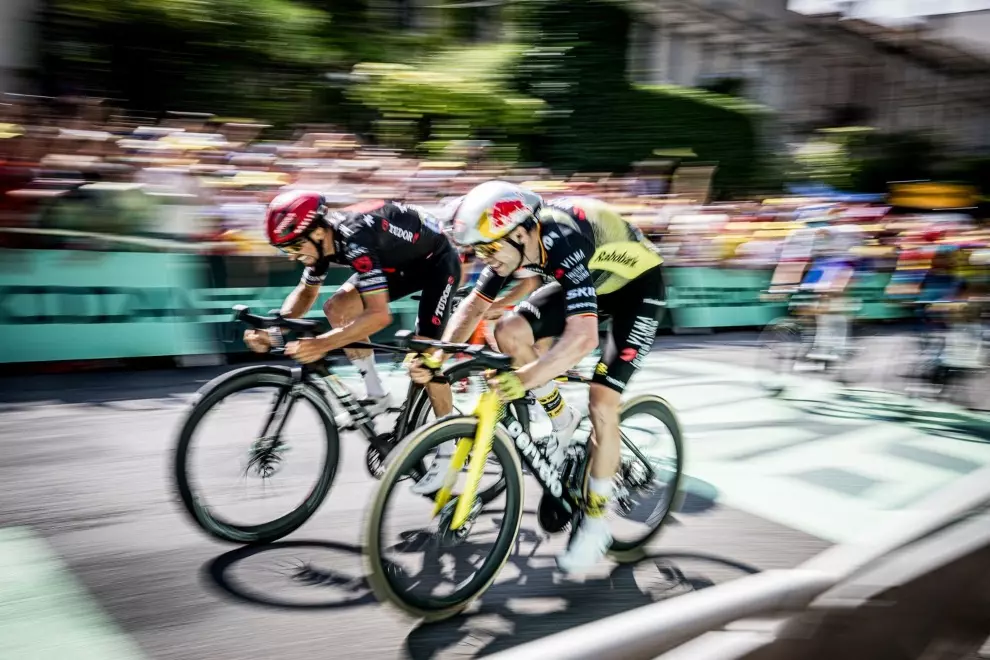Healthy vs unhealthy competitiveness
For many cyclists, competition is what gets them out of bed in the morning. That drive to improve, to push limits, to win, is part of what makes cycling so satisfying. But competitiveness is complex. It thrives on comparison, and when the comparison is with your partner, someone you love, admire, and want to feel safe with, things get tricky. What starts as a friendly race to the next signpost can spiral into ego clashes and ultimately something that can spill over to the rest of your relationship.
Healthy competition respects both parties. It’s playful, consensual, and framed around growth. You push each other to be better without undermining or outshining. It shows up as encouragement, cheering each other’s wins, and being okay when one person has a better day.
Unhealthy competition thrives on dominance. It’s driven by insecurity, fear, or a need to prove something. You might feel deflated when your partner rides stronger or try to diminish their success to protect your own ego.
Signs of unhealthy competition
It’s not always obvious at first. But here are some red flags that can help you spot whether the competition with your partner is turning unhealthy.
- You dread riding together because it feels like a test.
- There’s tension or withdrawal after one of you has a better day.
- You feel left out or resentful when friends compliment your partner.
- You secretly hope your partner doesn’t do something well.
- You feel angry about your partner’s success.
- You or your partner gloat after strong performances.
Before you panic, it’s normal if you feel some of these things occasionally, especially as a very competitive person. But if they don’t fade, become stronger or even begin to negatively affect your relationship, it’s time to take a step back.
Start in your own head
What I found is that if you’re trying to fix unhealthy competitiveness in a couple, you really have to start in your own head. You have to stop and honestly answer some of the following questions for yourself.
- Do I feel threatened by my partner’s abilities?
- What does my partner’s success say about me?
- What am I afraid will happen?
- Am I deriving my worth from my cycling performances?
Often, unhealthy competitiveness stems from fear of not being good enough, of losing identity, of being overshadowed. Naming that fear is the first step to disarming it.
How I deal with competitiveness
If you’re a guy and your girlfriend finally beat you on a tough climb, how do you react? I know that in the past, I would have probably made a lot of excuses and maybe even stopped riding together. Now, I think it’s awesome. I’m excited to tell my friends because I’m genuinely impressed by her talent, hard work and consistency.
I’ve learned that competition feels best when I’m comfortable with myself and secure in my abilities as a cyclist. Losing a sprint to the next signpost doesn’t feel like a threat to my ego or self-worth, it just means she was quicker at that moment. It doesn’t mean I won’t win next time.
This way, competition stays fun and playful. It’s just a little extra motivation to push harder, and it’s honestly a win-win. If she wins, I’m genuinely proud and happy for her and it often sparks me to want to train harder. If I win, it feels good, and it motivates her.
Make it fun and a source of motivation
The cool thing about competition is that you can enjoy it with your partner even if your fitness and skill level is a bit different. Maybe one of you gets a head start to a sprint. And maybe that head start becomes shorter and shorter as they improve. If you keep it playful and set your egos aside, it makes races and challenges fun and motivating.
So yes, I think you can compete against your significant other. I like to think of it like competing with teammates, not rivals. You push each other to watch everyone grow. At the end of the day, the real win is crossing the finish line still connected, still having fun, and still wanting to ride together again.








